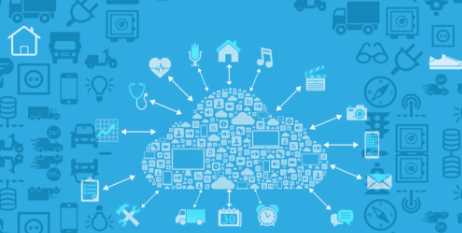The Internet of Things (IoT) has become an integral part of our daily lives, connecting a vast network of devices and generating massive amounts of data. To effectively harness the potential of IoT, cloud computing plays a crucial role. In this article, we will explore the significance of cloud computing in IoT, highlighting its benefits and how it enables the scalability, storage, processing, and analysis of IoT data.
Scalability and Flexibility
Cloud computing offers unparalleled scalability and flexibility, making it an ideal platform for IoT deployments. As the number of connected devices continues to grow rapidly, the cloud provides a scalable infrastructure capable of handling the enormous volume of data generated by IoT devices. With cloud services, organizations can easily scale their IoT applications and accommodate increasing workloads without investing in additional hardware or infrastructure.
Data Storage and Management
IoT devices generate an abundance of data, ranging from sensor readings to multimedia content. Storing and managing this vast amount of data can be a significant challenge. Cloud computing provides the necessary storage capabilities to handle and store IoT data effectively. Cloud storage services offer virtually unlimited storage capacity, allowing organizations to store and access their IoT data securely and cost-effectively. Additionally, cloud platforms offer advanced data management tools and services that enable efficient data organization, retrieval, and archival.
Processing and Analysis of IoT Data
IoT data is valuable only if it can be transformed into actionable insights. Cloud computing provides powerful computational capabilities for processing and analyzing IoT data. By leveraging cloud-based analytics tools and frameworks, organizations can apply complex algorithms and machine learning models to IoT data. This enables real-time data analysis, pattern recognition, predictive modeling, and anomaly detection, empowering businesses to make data-driven decisions and derive meaningful insights from their IoT deployments.
Real-time Monitoring and Control
Cloud computing enables real-time monitoring and control of IoT devices and applications. With IoT devices continuously streaming data to the cloud, organizations can remotely monitor device status, performance metrics, and environmental conditions in real-time. This real-time visibility allows businesses to identify potential issues or anomalies promptly, take preventive measures, and optimize the performance of their IoT systems. Additionally, cloud-based control mechanisms enable organizations to remotely manage and configure IoT devices, update firmware, and deploy software patches efficiently.
Security and Privacy
Security is a critical concern in IoT deployments, as interconnected devices create potential entry points for cyber threats. Cloud computing provides robust security measures and protocols to protect IoT data and applications. Cloud service providers implement comprehensive security frameworks, including data encryption, access controls, identity management, and threat detection systems. By leveraging the security expertise of cloud providers, organizations can enhance the security posture of their IoT deployments and ensure the confidentiality, integrity, and availability of their data.
Cost Optimization and Resource Efficiency
Cloud computing offers cost optimization and resource efficiency benefits for IoT implementations. By leveraging cloud services, organizations can avoid substantial upfront investments in infrastructure and hardware. Instead, they can pay for the resources they consume on a pay-as-you-go basis. This flexibility allows businesses to scale their IoT deployments while optimizing costs. Additionally, cloud computing enables resource pooling and sharing, allowing multiple IoT applications to utilize the same infrastructure, resulting in improved resource efficiency and reduced overall operational costs.
Conclusion
Cloud computing plays a pivotal role in realizing the full potential of the Internet of Things. Its scalability, storage capabilities, processing power, real-time monitoring, and security features make it an ideal platform for IoT deployments. By leveraging cloud services, organizations can effectively manage and analyze the vast amounts of data generated by IoT devices, derive actionable insights, enhance decision-making processes, and drive innovation. As IoT continues to evolve, the role of cloud computing will only become more vital in shaping the future of interconnected technologies.




Leave Comment